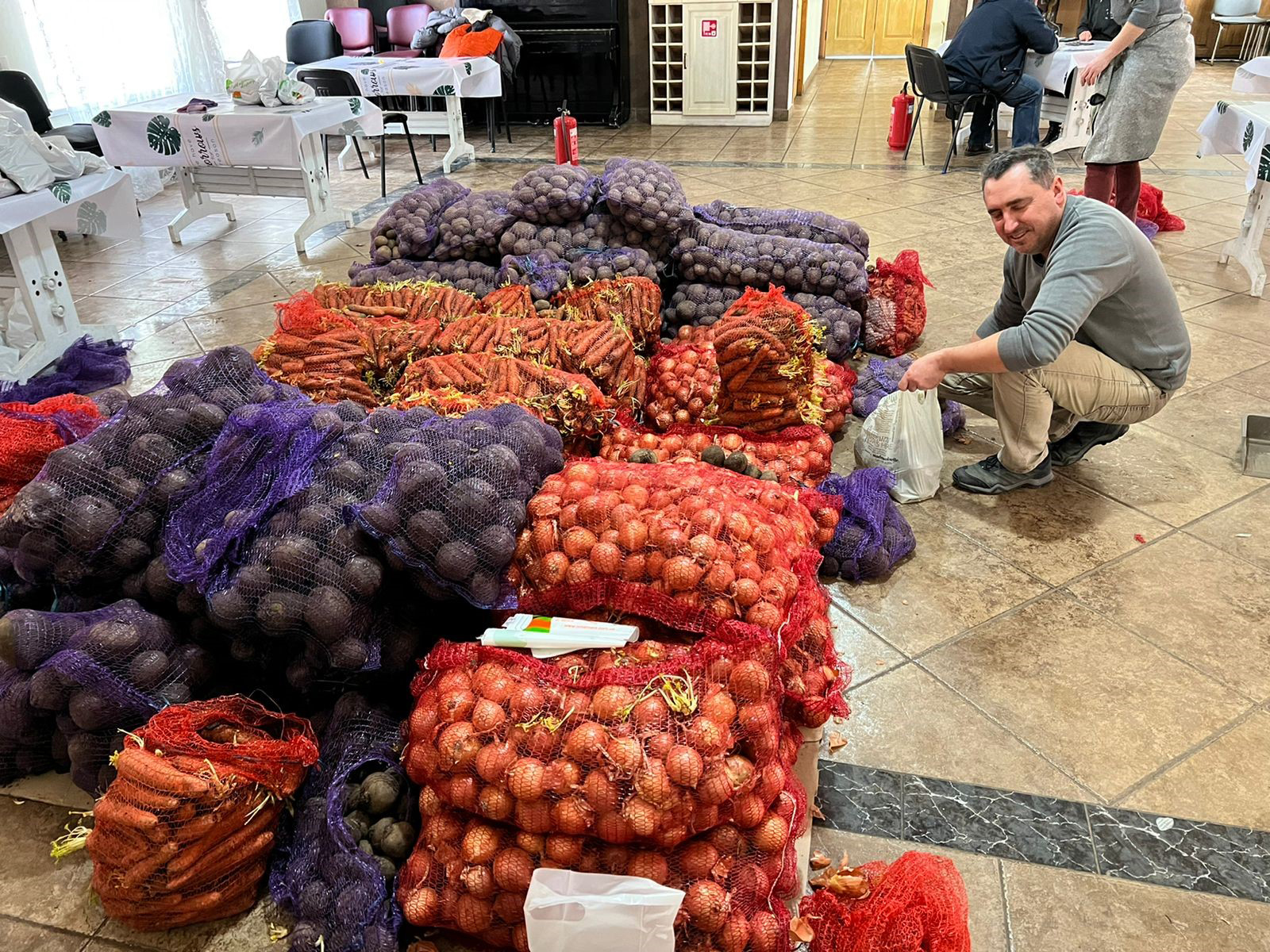click to dowload our latest edition
CLICK HERE TO SUBSCRIBE TO OUR NEWSLETTER


Published
2 years agoon
Most of Ukraine is fighting back against the Russian invasion, but some towns have fallen and have been occupied by Russian forces.
One such city is Kherson in the south of Ukraine. Some news reports say it was surrounded and occupied in the first hours of the invasion, while others say it was it was officially taken over on 3 March.
Rabbi Yosef Yitzchak Wolff is there, and said, “By Thursday afternoon [24 February], every entry and departure point were closed off. There was nothing coming in or out of the city. What we had was all there was. I understood we were on the cusp of a tragic catastrophe, G-d forbid.”
Wolff, who is director of Chabad-Lubavitch in the city, was speaking on a webinar hosted by Chabad of the West Coast on 14 March in an evening of “Torah, tefillah and tzedakah in the merit of peace and safety in Ukraine and around the world”.
Kherson is an administrative and economic centre and an important port on the Black Sea and the Dnieper River. Speaking in Hebrew, Wolff’s account was translated by Rabbi Asher Deren, who hosted the evening.
“I called the supermarket where we have a running account and asked if they were still open,” said Wolff. “The owner said yes, except instead of being open 24/7, it was open only morning to evening. So I asked, ‘What can I buy?’ and he responded, ‘there are just some oranges and apple juice. We’ll sell that, and then we’re closed.’”
Wolff told his wife, Chaya, “’We’re standing before an emergency situation.’ I realised this was the moment I needed to activate every connection I had made in the past 30 years.”
He reached out to a contact and told him he needed access to tons of basic foodstuffs. The contact responded, “Give me 10 minutes,” and then told Wolff where to go. Wolff followed the instructions and landed up at a warehouse owned by a friend of the contact. “No one can normally just go there,” he said. “It was literally an emergency storehouse built underground.”
Wolff was given access to the supplies to provide food for his community. Now, every three days, more than 1 000 packages are sent out. Most people come to the shul to collect their parcel. But some are too old and sick, so volunteers walk for hours to deliver food to them as there’s no petrol to drive.
Wolff said he got calls from all over the world giving moral support and many people said, “Don’t worry, soon it will be Purim and you’ll celebrate.” “My answer is I have no doubt we’ll celebrate, but my job is to make sure we’re all still alive on Purim. And that’s all we’ve been doing the past – two and a half weeks – keeping people alive.”
He said many people who aren’t Jewish come to him too. “Five days ago, a 19-year-old girl came to the shul with her father. She looked at me and I could see the feeling of death in her eyes. Her father told me she had juvenile diabetes and needed insulin urgently. I said, ‘I don’t have any, why did you come here?’ He responded that he had a friend in Israel who told him to go to the shul as it would help.’
Wolff called up a director of a big hospital and he told her to send the girl there. “Fifteen minutes later, the father called me and said, ‘You saved my daughter’s life.’”
Since then, the shul library has become a makeshift pharmacy, with medicine on some shelves instead of books.
Wolff said there were many stories like this.
He got a call from Germany about 35 students from Nigeria and Cameroon who had just finished the last of their food. He was asked to help. They came to the shul starving and he gave them enough food to keep going. “So, in the next week, none of those kids are dying.”
Wolff describes a city that’s eerily quiet. He said things were slowly getting back to “normal”.
“It’s ironic that in terms of safety and security, this is one of the safest places to be in Ukraine right now, because there’s no war happening here.” People can access basic essentials if they stand in long lines. There are Russian soldiers, but as long as you don’t provoke them, they don’t treat people badly.”
However, on 5 March, the media reported that about 2 000 people marched through the city centre, waving flags and singing the Ukrainian national anthem. They shouted patriotic slogans including “Russians go home” and “Kherson is Ukraine”. Videos of the protest on social media show Russian troops firing into the air to deter the approaching crowd.
Rabbi Wolff is convinced they will celebrate Purim peacefully and joyfully and is even starting to prepare for Pesach.
Looking back, he considers that he could have fled in the early hours of the invasion or even before. “But I knew if I left, everything would fall apart. I’m talking about the lives we’re taking care of. So, my wife and I took the hard decision to stay. This is where we need to be. The past two and a half weeks have been the most important decision of my shlichus.”

Carol kramer
Mar 18, 2022 at 1:40 pm
Amazing people in the world